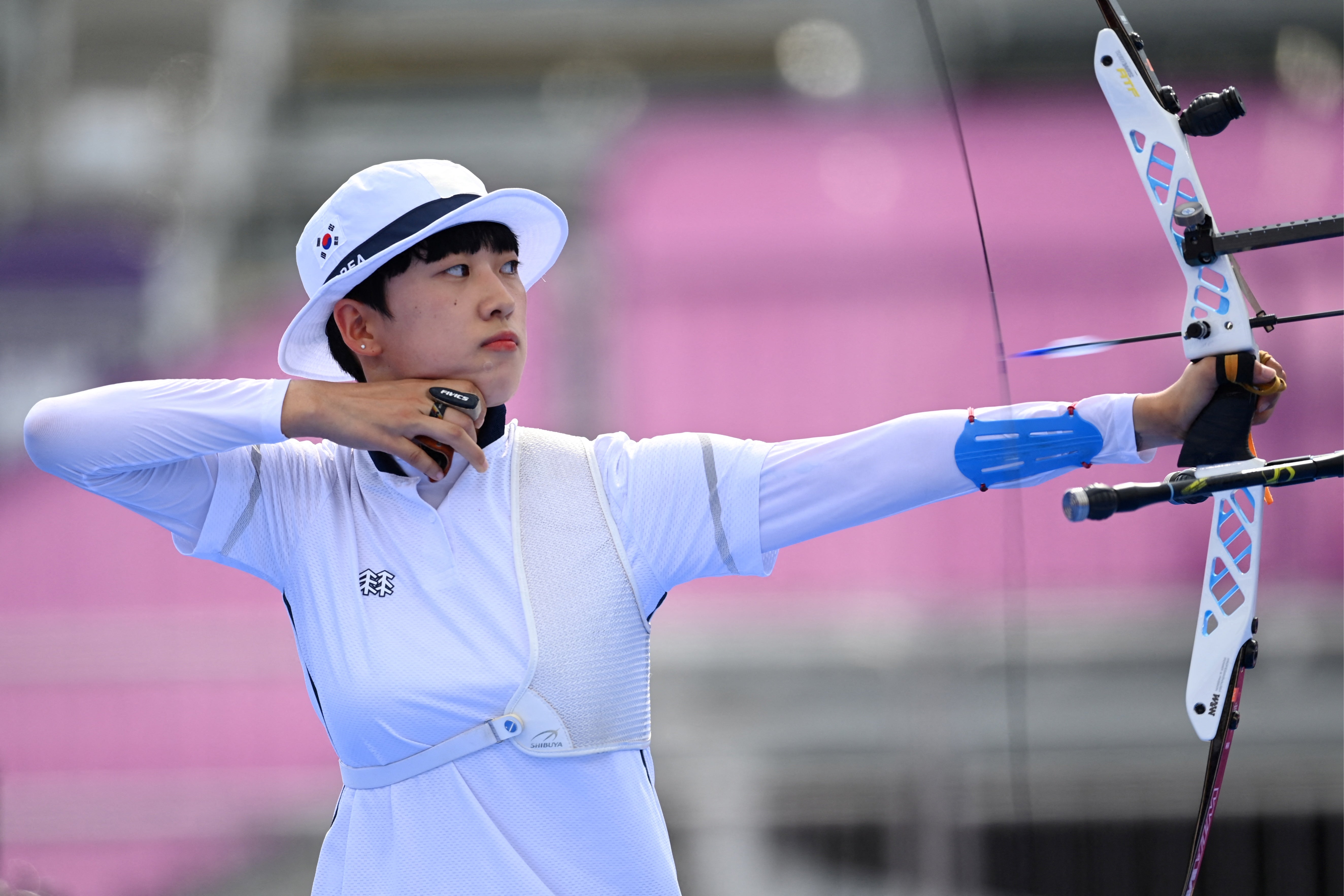How the backlash against a South Korean Olympic star led women to reclaim their short hair
Thousands of South Korean women post messages and photos of their own short hair to show support

When South Korean Olympic archer An San was celebrating her three gold medals at Tokyo 2020, men back home were busy criticising her short hair.
At the Games, she told reporters that she would only answer questions related to her performance and not the online hostility that was brewing back home in South Korea.
Because of her short hair, men called her a feminist — a term that is still considered an insult in South Korea and often confused with misandry.
BBC reported that a man posted online: “It’s good she got a gold but her short hair makes her seem like she’s a feminist. If she is, I withdraw my support. All feminists should die.”
To counter the growing criticism of Ms An online, many South Korean women, including politicians and celebrities, posted messages and their own cropped-hair photos to support the athlete.
Even South Korean President Moon Jae-in praised the Olympic archer and said of the online backlash: “Sometimes we have to overcome expectations and discrimination.”
Challenging the notion that short hair makes someone less of a woman, thousands rallied online posting pictures of their hair using the hashtag #women_shortcut_campaign on Twitter.
The online movement for women sporting short hair was first started by one Han Jiyoung by creating the hashtag #women_shortcut_campaign on social media. She was quoted by the BBC as saying that she was “troubled” when she saw “not one or two, but many misogynistic comments coming up on every male-dominated online community.”
She said: “This kind of mass attack ... sends the message that men can control the female body and a message that females need to hide their feminist identity.”
She emphasised that “I thought starting a campaign for women to [show off] their short hair and to show solidarity to female Olympians would be effective in tackling both issues.”
Ryu Hyeong-rim, an activist with Womenlink, told the media that in South Korea, long hair is seen as a symbol of conventional femininity. “An San’s decision to wear her hair short was seen by some as violating’ society’s idea of what a woman should look like.”
Tens of thousands of pictures have started pouring in in support of Ms An. Some users also posted before and after photos of their hair cut short, inspired by the Olympic star.
Sim Sang-Jung, a lawmaker from the minority Justice Party tweeted: “With that firm look, please shoot through every prejudice in the world. We stand by your short-cut hair and support you.”
Hawon Jung, author of an upcoming book on South Korea’s #MeToo movement, told the BBC that “short-cropped hair has become something of a political statement among many young feminists.” She added that “this feminist awakening [drew] a strong backlash by men who thought they had gone too far.”
As per a recent survey, at least 60 per cent of South Korean men in their 20s said they strongly opposed feminism.
The country is also one of the worst when it comes to the gender pay gap. Women in South Korea earn only 63 per cent of men’s salaries.
South Korean women have, however, started raising their voices against misogyny and patriarchy. Hundreds of thousands of women rallied against spy cams when it was revealed that more than 30,000 cases of filming with the use of hidden cameras were reported to police between 2013 and 2018 in South Korea.
Reports said that the short hair controversy comes weeks after an aggressive campaign against feminists in the country. Men claimed that an emoji depicting a finger gesture belittled their penis size. Several brands like the convenience store GS 25 and fried chicken chains BBQ Genesis and Kyochon were forced to remove print ads containing the gesture earlier this year, following boycott calls, reports said.
But Ms Jung believes that: “There has already been a real change in the last couple of years. Women are trying to chart new paths for their lives and defying societal pressure to look a certain conventionally ‘female’ way - to have the freedom to choose whatever hairstyle they find most comfortable - that is one small part of it.”
Join our commenting forum
Join thought-provoking conversations, follow other Independent readers and see their replies
Comments
Bookmark popover
Removed from bookmarks